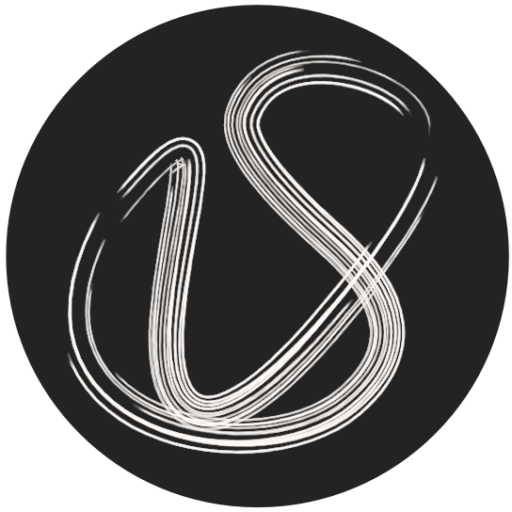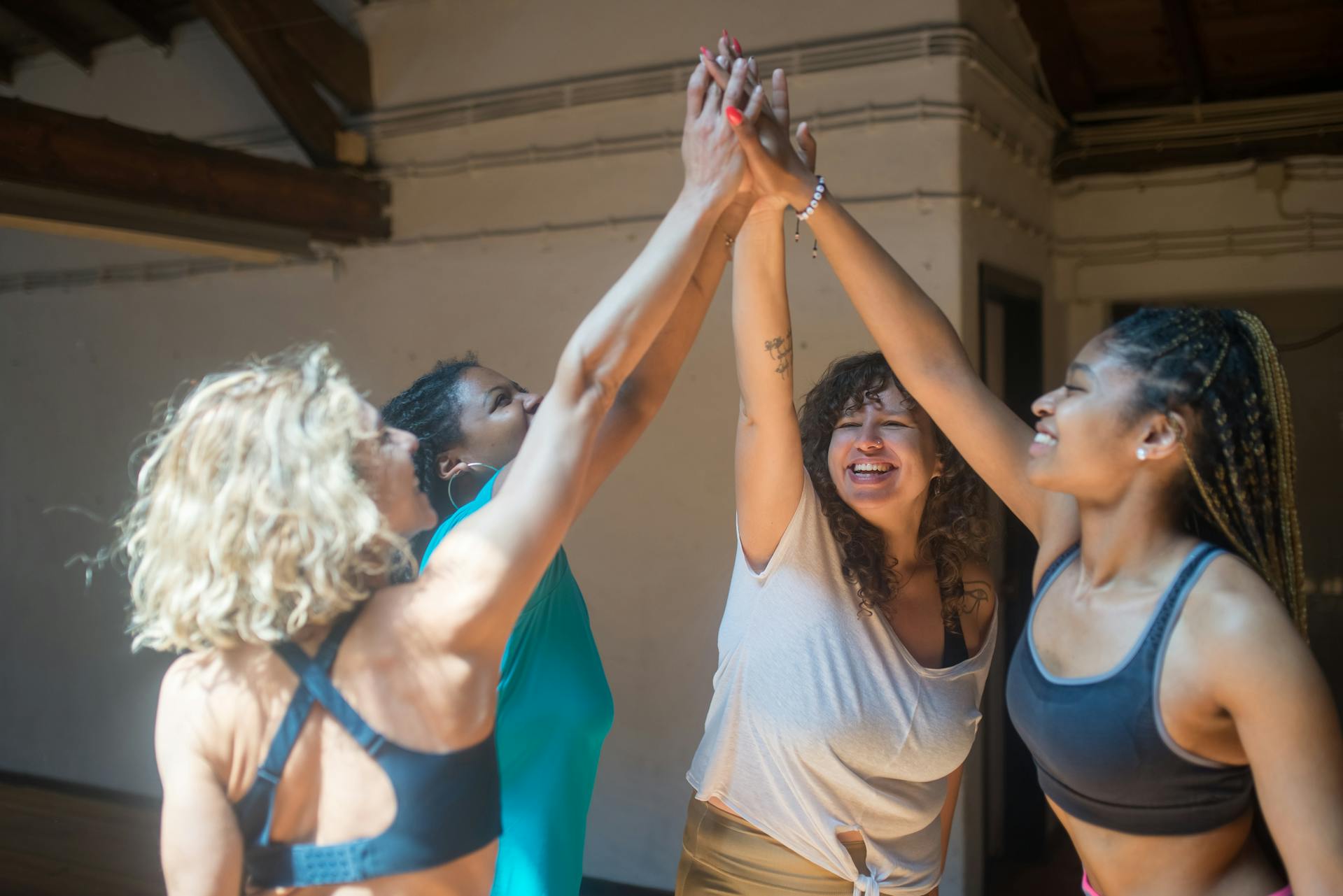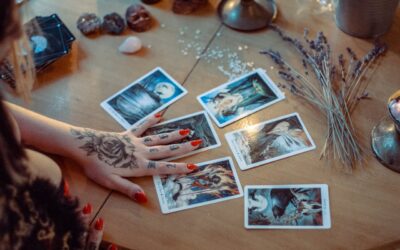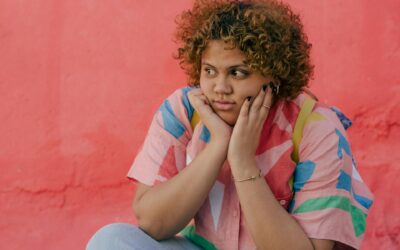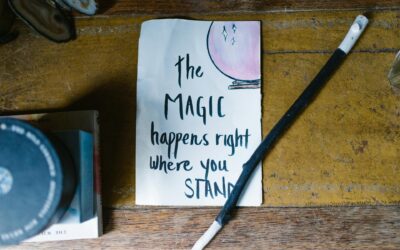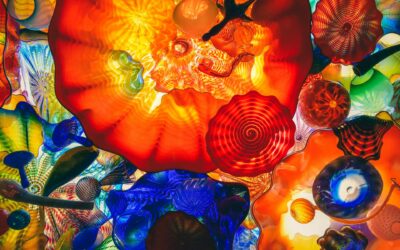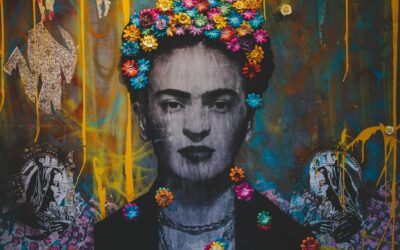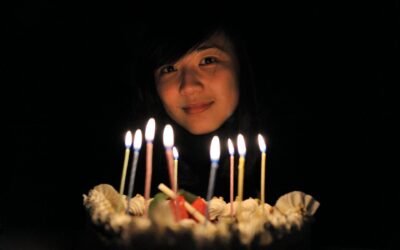Photo by Kampus Production on Pexels.
← CHAPTER OVERVIEW
How can we create a real alternative to what we currently have?
Dear Creatrix,
How are you today?
In the last lesson, we reminded ourselves that every trigger can help us to grow.
Because it shows us an unhealed part of ourselves – that we can then choose to work on and resolve.
And we also talked about judgement and found out that we need judgement to decide what is right and wrong for us, what we want more or less of in our lives.
Judgement can help us to see something clearly and to use that clarity to act accordingly – however, it is not helpful to contemn the other person or group – because we don’t like what they do.
I think this is key to understand, and it only became clear to me as well after beginning to talk about it in the last lesson.
So despite what the guides, and other spiritual teachings are saying and what my initial intention was as well, there’s nothing wrong with judgement – as long as we treat it as a natural emotion that we can use to gain more clarity on what we want – it’s condemnation that we don’t want (and it might have been an easy translation mistake here until now).
It’s easy to see that when we judge ourselves for judging, nothing is won.
However, when we see judgement as a natural reaction we have when we encounter a suppressed part of ourselves in another person, it also becomes a necessary trigger to help us into growth – again, as long as we see it as the tool that it is to get closer to our desires and needs and not as a way to think we are better or worse than others.
And I also just want to acknowledge that this is the practice of life – it takes a while to master this, to recognize how well this works, but the more we try and the kinder we are to ourselves – the easier it becomes to heal whenever we encounter a trigger.
One important premise for this to work, is to understand and acknowledge that there is nothing wrong with any one of us, nothing could be wrong with any one of us, and we are right where we need to be on our journey to becoming our authentic selves and discovering and sharing our superpowers.
Sometimes that looks like thinking judgement in general is unhelpful one day, until you zoom in more closely and then come to realize that it’s actually really good and helpful as long as we don’t use it against each other. 😉
It also means that when I catch myself judging a person in the picture above, I can ask myself why I judge, realize that that is because I would be afraid to be judged for looking like her and to then remind myself that it doesn’t matter what other people are thinking, as long as I’m happy with my decisions – so that I can then full-heartedly and consciously love and celebrate myself and her for being who we are.
If, however, I simply suppress my judgement and think it’s bad to judge – nothing gets resolved.
We will get more into this in a second.
Like we saw on Friday, when looking at the Source Archetypes, we can always decide if we want to expand or stop growing in any situation.
If something triggers us because it brings back memories of the past where we felt disempowered, we can see this as an opportunity to leave this feeling of disempowerment in that situation behind once and for all – by creating a new outcome – or to keep it by just think I’m triggered – I need to leave, the trigger needs to disappear – without resolving it.
And we don’t have to do it alone, we can get help if we need it.
But it will always be our decision how we want to handle this in the future – if we wish to allow other people to have power over us, by not resolving our triggers, or if we intend to own our feelings, work through them and become more free each time we do.
And you can do that whenever you feel ready, it doesn’t have to be now if it feels too scary.
Start somewhere where it feels doable, see how it works, and then you can, bit by bit, move from more superficial and not so important triggers to the deeper ones.
Because it’s the only way you can become a strong and independent person in a world full of triggers.
You know how hard it can be to create change within yourself, so try to get someone else to change just so that you don’t feel triggered by their actions – it’s not a game we are going to see play out well in our lifetimes.
If we want to see something different from what we are seeing and experiencing now, we need to change ourselves by changing our perspectives.
And we need to find a new way to look at things if we really wish to create alternatives to current inequalities and injustices.
So today and in the next lesson, we will see how we can create real alternatives to current community structures and problems.
And for that, it helps to remember:
As within, so without – as above, so below.
Everything that happens in the detail also happens within the big picture – amplified.
One of the biggest problems I’ve seen in communities today is exclusion – and I know this so well, because I was deeply involved in and acted from within these structures for a long time.
The communities I was involved in were founded and built to counteract sexist and racist structures in society – yet in ways they simply used the same methods, just against other people.
The suffering remained, though.
One of the fundamental misunderstandings we can see in the large and the small is that turning away from a problem or locking it up (!) would be a solution to anything.
On a personal level, it means that, as we’ve seen above, when we see something unpleasant (in ourselves and others), we don’t just judge it and turn away from it, or suppress it and not act on it – but look at it, be kind to it, ask it where it’s coming from and what it needs and then resolve it.
The same can be done on a community level, and eventually will have to be done on a global and a collective level as well.
We can see that in how we raise our kids as well:
Do we punish them, or do we help them understand the situation better, see the bigger picture so they can make safer and wiser choices in the future?
And we can really also see this in how we treat ourselves.
If we think we need to punish ourselves for anything – we will think it’s OK to punish others for something as well – but punishment never resolves anything – it just creates fear and keeps people from expressing freely.
And we all know how exciting the things are we are not allowed to do.
Only when we allow ourselves to do EVERYTHING we want to, we can begin to make wise choices because we’re not tempted to do something just because it’s forbidden.
I recently saw a poster for a children’s show called “Furzipups” here in Germany – Furz and Pups both translate to fart in English – and I spent a moment thinking why this is so tempting, even for me.
When we are not allowed to say or do certain things – even things as natural as a fart – then they become exciting and at the same time, we create the idea that there was something wrong with ourselves or other people for being attracted to something forbidden – when there really isn’t anything wrong with ourselves or the thing – but with what is forbidden.
They/we’re just noticing the misalignment that something completely normal is triggering everyone around us and is making people react to us.
We couldn’t care less about the thing itself – we just like the attention we are getting for poking into something other people have suppressed.
You can easily check if that is true for yourself.
When do you feel bad about yourself?
What are the things that you are afraid that they would make you a bad person?
If you follow them, you will find that this has nothing to do with you, it’s just that someone at some point told you these are bad things, or even possibly you yourself when they are not.
For example, when you feel like you want to hurt other people – you most likely have been hurt as a child and that child is still looking for revenge because it was never soothed and no one has acknowledged that the way it was treated wasn’t OK.
Once you embrace that inner child and tell it that it was right – that how it was treated was not OK – it will not seek revenge any more.
So there wasn’t anything wrong with you, ever – you made the right judgement right away – it just wasn’t confirmed, and so you thought something was wrong with you because everyone else said what happened was fine – and then you carried that pain with you until you can now resolve it.
So now, imagine that because of that misunderstanding, you do actually hurt someone.
What do you think will lead to longer lasting and better results?
To lock someone away or to exclude them for doing something wrong, and thinking they are actually a bad person (when they are not – as that doesn’t exist) or to help them resolve it?
This is so important when it comes to all the problems we see right now – the prison system, immigration politics, and even how we treat our natural resources and each other.
Photo by mikoto.raw Photographer
Let’s start with the prison system.
Imagine our government as a single Mum, w…
